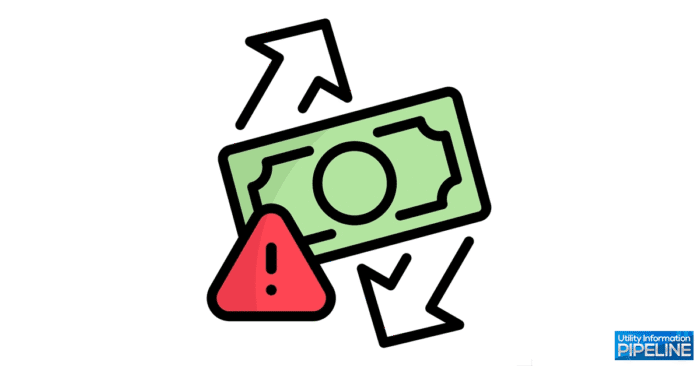In a recent posting on a listserv I subscribe to, someone inquired if any other jurisdictions have a policy that requires employees who handle cash to make up shortages from personal funds. A similar question was asked back in 2012, and I used that inquiry as the inspiration for newsletter number 48 (yes, I’ve been publishing my newsletter that long!).
After rereading what I wrote on my old blog, it’s still relevant today and bears repeating. So here it is, with only a few minor updates…
Most offices I’m familiar with have cash over and short accounts that track cash overages and shortages incurred by cashiers. I am not aware of any utilities or local governments that require cashiers to make up cash shortages. If they did, would the same cashier be entitled to keep any overages? I think it’s pretty easy to see why that wouldn’t be a good idea!
Even the best cashiers make mistakes
When making change, even the best cashiers make mistakes, so an occasional cash overage or shortage is to be expected. However, repeated overages and shortages may be indicative of an employee who is either not diligent in their job or is dishonest. The best way to address this is to implement effective internal controls and establish a clear cash handling policy.
Internal controls
Ideally, every cashier should have their own cash drawer. I realize that many smaller offices share a single cash drawer, but if you are experiencing cash balancing problems, the only way to identify the responsible party is for each cashier to be accountable for their own cash.
Handwritten receipts should be avoided. This is 2025, and if your software isn’t capable of generating a receipt for all types of payments, including small cash purchases such as making copies or notarizing documents, it’s time to look for new software!
At the end of the day, cash should be counted by the cashier and double-checked by a supervisor. Totals for cash, checks, money orders, and credit cards should be verified against the day’s collection reports and matched to the bank deposit.
Elements of a good cash handling policy
A good cash handling policy should identify quantifiable measures to determine if a cashier’s performance meets acceptable standards. These measures include:
- Number of overages/shortages within an established time period (i.e., 30 days)
- Number of overages/shortages exceeding a specific amount (i.e. $5.00) within an established time period
- Cumulative overages/shortages exceeding a set amount (i.e. $50.00) within an established time period
It should also establish a limit for any single shortage (i.e. $100.00) that is immediately reported and investigated.
The policy should also clearly state what actions (i.e., additional training, probation, or termination) will be taken if the employee’s handling of cash does not improve.
It may even be illegal!
A quick Google search indicates that requiring a cashier to replace a cash shortage with their own funds may be illegal. I’m not an attorney, but it appears the only way to legally require a cashier to make up shortages from their personal funds is to have a written authorization signed by the employee.
Is it time to review your cash handling policy?
Have you reviewed your cash handling policy recently? If not, this might be a good time to do so.
If you don’t have one, I encourage you to develop and adopt one. Immediately! If you would like assistance developing or reviewing your cash handling policy, please call me at 919-673-4050 or email me at gary@utilityinformationpipeline.com to learn how a business review could benefit your office.
© 2025 Gary Sanders

